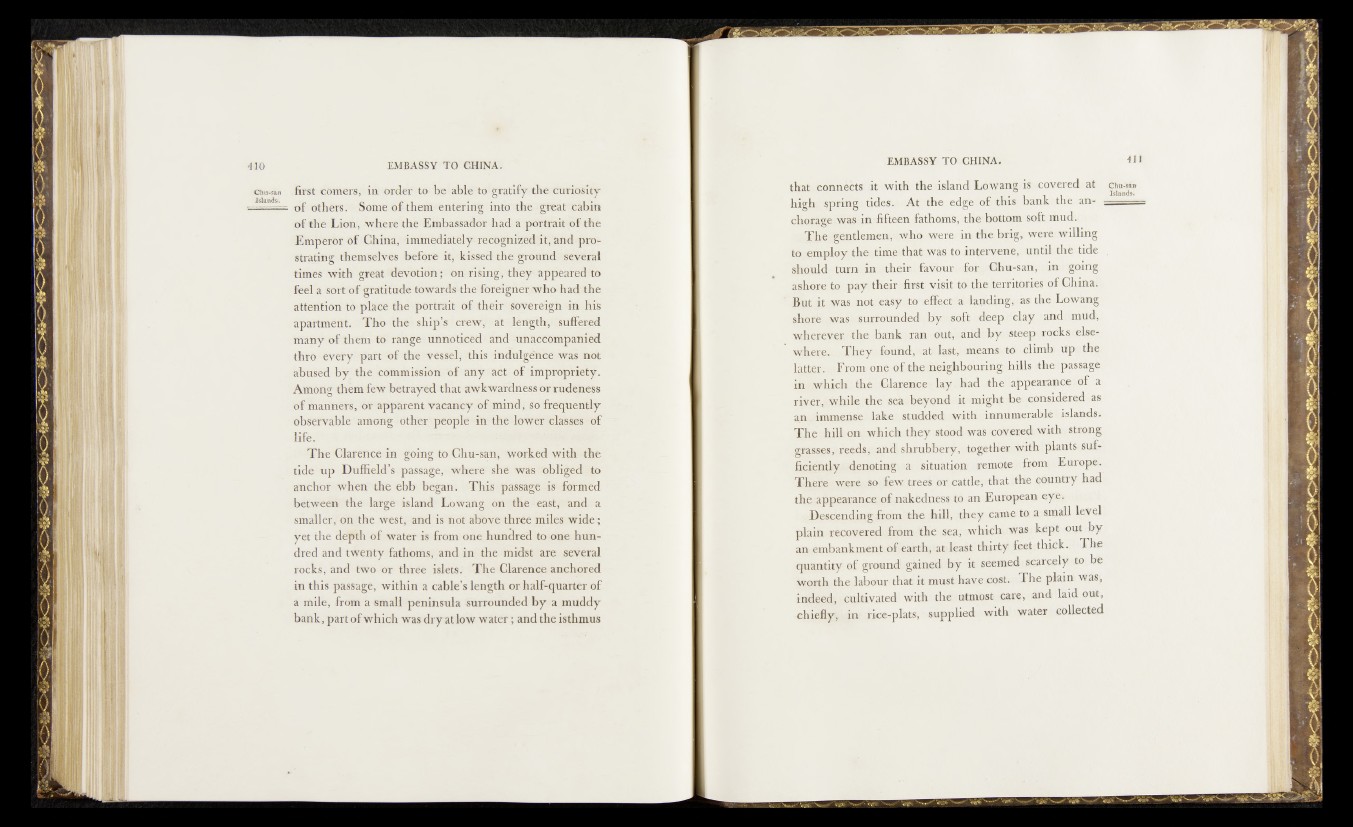
ctvu-s&n first comers, in order to be able to gratify the curios^
of others. Some o f them entering into the-great cabin
of the Lion, where the Embassador had a portrait of the
Emperor of Ghina, immediately recognized it, and prostrating
themselves before it, kissed the ground several
times with great devotion; on rising, they- appeared to
Feel a sort of gratitude towards the foreigner who had the
attention to place the portrait of their sovereign in his
apartment. Tho the ship’s crew, at length, suffered
many of them to- range unnoticed and 'Unaccompanied
thro every part of the vessel, this indulgence was not
abused by the commission of any act of impropriety.
Among them few betrayed that awkwardness or rudeness
of manners, or apparent vacancy of mind, so frequently
observable among other people in the lower classes of
life.T
he Clarence in going to Ghu-san, worked with the
tide up Duffield’s passage^ where she was obliged; to
anchor when the ebb began. This passage is formed
between the large island Lowang on the east, and a
smaller^On the west, and is not above three miles wide;
yet the depth of water is from one hundred to one hundred
and twenty fathoms, and in the midst are several
rocks, and two or three islets. The Clarence anchored
in this passage, within a cable’s length or half-quarter of
a mile, from a small peninsula surrounded by a muddy
bank, part of which was dry at low water; and the isthmus
that connects it with the island Lowang is covered at
high spring tides. At the edge-qf this bank the an- ....
cliorage was in fifteen fathoms, the bottom soft mud.
The gentlemen, who were in the brig, were willing
to employ the tim.e that waS to intervene, until the tide .
should turn in their favour-.for Ghu-san, in going
ashore to pay their first: visit to the territories of China.
But it was not easy to .effect a landing, as the Lowang
shore was surrounded by soft deep clay and mud,
wherever ' the bank ran out, and hy steepracks elsewhere.
They;f®und, at last, means to climb up the
latter, from one of the neighbouring-“ hills the passage
in which, the Clarence- lay had the appearancedf a
river, while the sea beyond it might be considered as
an .itmrummc lake • studded with i«mimerable islands.
The-hill on which they stoodwas c®vea$ed with strong
grasses, reeds, and shrubbery, together with plants sufficiently
denoting a situation remote from Europe.
These® were so few trees or rattle, that the country had
theiappearance of nakedness to an European eye.
Descending from the hill, they came to a small level
plain recovered from the jea^wfaieh was kept out by
an embankment of earth, at least thirty feet thick. The
quantity of ground gained by it seemed; scarcely to be
worth the labour that it must have cost. The plain was,
indeed, cultivated with the utmost caTe, and laid out,
chiefly, in rice-plats, supplied with water collected